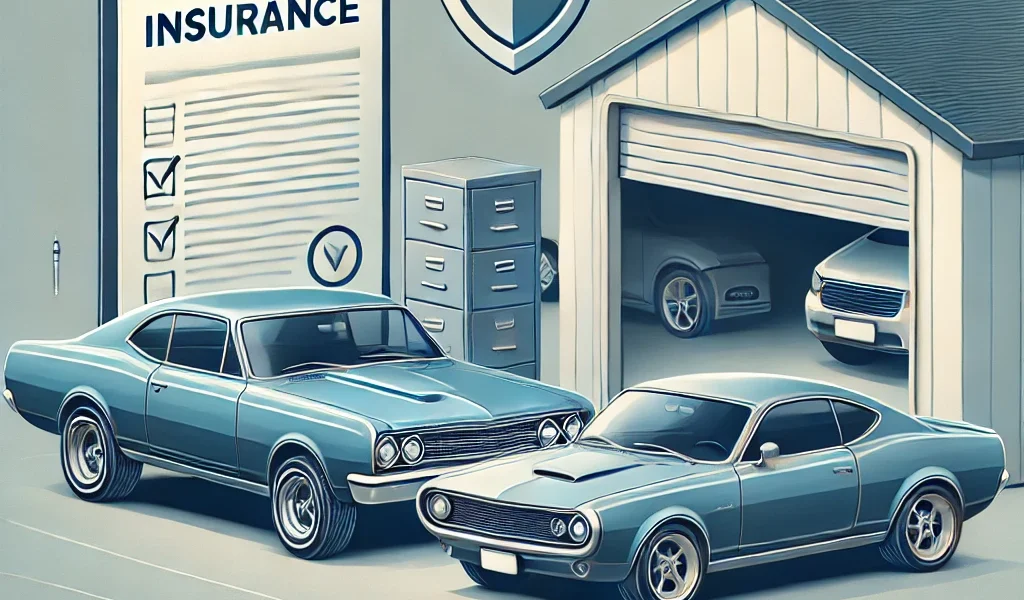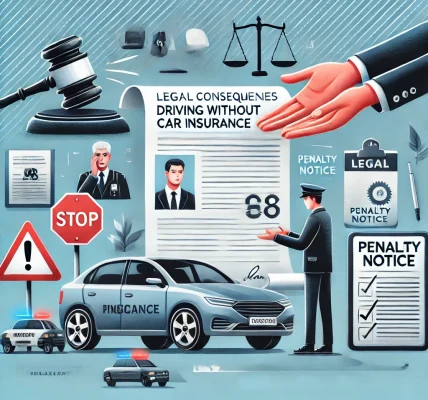Introduction
When it comes to insuring a vehicle, not all cars require the same type of coverage. Classic cars, with their historical value and limited use, demand a different insurance approach compared to standard everyday vehicles. Classic car insurance and standard car insurance have distinct differences in terms of coverage, cost, eligibility, and benefits.
This guide will break down the key differences between classic car insurance and standard car insurance, helping you decide which type best suits your vehicle and driving needs.
What is Classic Car Insurance?
Classic car insurance is a specialized policy designed for vintage or collectible cars that are not used for daily driving. These vehicles are often well-maintained, stored securely, and driven occasionally for leisure or exhibitions.
Eligibility Criteria for Classic Car Insurance
To qualify for classic car insurance, a vehicle typically must:
- Be at least 10-25 years old (varies by insurer).
- Be well-maintained and in good condition.
- Be stored in a secure location (e.g., garage or storage unit).
- Have limited annual mileage, often below 7,500 miles per year.
- Be used primarily for leisure, exhibitions, or car shows rather than daily commuting.
Examples of classic cars that qualify include:
- Vintage muscle cars (e.g., 1969 Ford Mustang, Chevrolet Camaro SS).
- Antique luxury cars (e.g., Rolls-Royce Silver Ghost, Jaguar E-Type).
- Classic sports cars (e.g., Porsche 911, Chevrolet Corvette Stingray).
What is Standard Car Insurance?
Standard car insurance provides coverage for regular vehicles used for daily commuting, errands, and general transportation needs. It covers common risks such as accidents, theft, and liability.
Eligibility Criteria for Standard Car Insurance
To qualify for standard car insurance, a vehicle must:
- Be used for daily transportation (work, school, personal use).
- Not have special historical or collectible value.
- Have unlimited annual mileage, with no specific restrictions.
- Not require specialized maintenance or restoration.
Examples of vehicles covered under standard car insurance:
- Modern sedans (e.g., Toyota Camry, Honda Accord).
- SUVs and trucks (e.g., Ford F-150, Jeep Grand Cherokee).
- Economy cars (e.g., Hyundai Elantra, Nissan Sentra).
Key Differences Between Classic and Standard Car Insurance
| Feature | Classic Car Insurance | Standard Car Insurance |
|---|---|---|
| Eligibility | Limited to older, collectible, or vintage cars | Covers everyday modern vehicles |
| Usage Limitations | Limited annual mileage, not for daily use | No mileage restrictions, used daily |
| Coverage Type | Agreed Value Coverage | Actual Cash Value Coverage |
| Cost | Lower premiums (due to lower risk) | Higher premiums (due to frequent use) |
| Storage Requirements | Secure garage storage often required | No storage restrictions |
| Restoration & Repairs | Covers rare parts and specialized repairs | Covers standard repairs and replacements |
Coverage Differences
1. Agreed Value vs. Actual Cash Value
- Classic Car Insurance offers Agreed Value Coverage, where the insurer and owner agree on the car’s value upfront. In case of total loss, the agreed amount is paid.
- Standard Car Insurance uses Actual Cash Value (ACV), which considers depreciation. The payout in case of a total loss is based on the car’s current market value, which decreases over time.
2. Premium Costs
- Classic Car Insurance tends to have lower premiums because these vehicles are driven less and maintained carefully.
- Standard Car Insurance has higher premiums due to daily usage, increasing accident risk and wear and tear.
3. Storage Requirements
- Classic Car Insurance often requires secure storage (garage or storage facility) to minimize damage or theft risks.
- Standard Car Insurance does not require special storage, as the vehicle is expected to be used and parked regularly.
4. Coverage for Repairs & Parts
- Classic Car Insurance covers specialized repairs and rare parts, ensuring the car is restored with authentic components.
- Standard Car Insurance covers standard repairs and replacement parts commonly available for modern vehicles.
Who Should Choose Classic Car Insurance?
Classic car insurance is ideal if: ✅ You own a vintage, collectible, or rare vehicle. ✅ You drive the car occasionally rather than daily. ✅ You can store the vehicle securely. ✅ You want full-value coverage for your car’s agreed-upon worth.
Who Should Choose Standard Car Insurance?
Standard car insurance is best if: ✅ You use your car for daily commuting and errands. ✅ Your vehicle has no special collectible value. ✅ You drive unlimited miles per year. ✅ You prefer a traditional insurance policy with standard coverage.
Conclusion
Understanding the differences between classic car insurance and standard car insurance helps ensure that your vehicle receives the right coverage at the best price. If you own a rare or collectible car, classic car insurance offers tailored protection and cost savings. For daily drivers, standard car insurance provides comprehensive coverage suited for everyday use.
Before choosing a policy, assess your vehicle’s usage, value, and storage conditions to select the insurance that best meets your needs.



